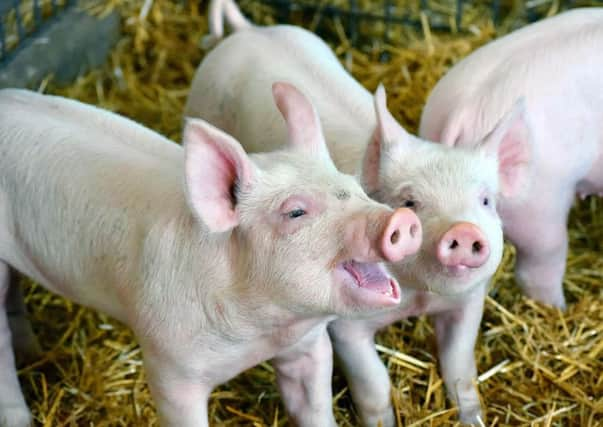Fergus Ewing promises more land for new farmers
This article contains affiliate links. We may earn a small commission on items purchased through this article, but that does not affect our editorial judgement.


Speaking at the Farm Advisory Service’s New Entrants gathering near Perth, rural economy secretary Fergus Ewing said that the group recently set up under the chairmanship of Henry Graham had been identifying organisations and opportunities to increase the amount of land available for first-time farming enterprises.
While land for the majority of starter farms had so far been provided by Forestry Enterprise Scotland, new opportunities had been identified on land held by other organisations such as Scottish Natural Heritage, the Scottish Environmental Protection Agency, Scottish Water, the Scottish Government itself and local councils – and Ewing said that an announcement on a new tranche of units could be expected shortly.
Advertisement
Hide AdAdvertisement
Hide Ad“However, I don’t want this initiative to simply be a quick fix – I want to have the philosophy of making land available to new entrant farmers embedded in the culture of such organisations- and all public bodies should do what they can to make more land available,” said Ewing.
He said that building on the initial success of the initiative, a number of large-scale private estates were now coming on board and had expressed an interest in creating starter farms.
Highlighting the opportunities offered to newcomers by the pig sector, Andy McGowan, chief executive of the co-operative, Scottish Pig Producers, said there had been a large drop in the number of untis producing pigs in Scotland in recent years.
However, with only an estimated 60 commercial producers now accounting for the bulk of production, he said that the quantity of pigmeat produced by this small number was close to equalling the entire output of Scotland’s sheep farmers.
He stressed that there were still major opportunities – but he advised that breeding herds were likely to be a better proposition at the moment than simply finishing weaners, as these were in short supply.
McGowan also said that producers should pick their markets carefully – and while indoor pig units were likely to offer a means of production so efficient that money could still be made during last year’s price fluctuations, he said that there was still demand for outdoor production – although producers should position themselves closer to the end user to take full advantage.
“Outdoor producers currently need to achieve a 10 per cent premium to cover their additional costs – however those planning on producing organic pork will need to achieve a 250 per cent premium in order to cover the current high cost of feed which is guaranteed as GM free,” said McGowan.
James Hutton announces changes to board
Advertisement
Hide AdAdvertisement
Hide AdThe James Hutton Institute has reaffirmed its agricultural roots with the appointment of Archie Gibson, executive director of the seed potato breeding company, Agrico UK, as a non-executive director.
Currently chairman of the Food & Drink Federation of Scotland, Gibson has also recently been appointed as one of the Scottish Government’s four Agriculture Champions. The institute said that Gibson’s appointment was part of an ongoing refresh of its board of directors and its commercial subsidiary, James Hutton Ltd.
Other recent changes have also seen Professor James Curran – who has spent 30 years in the agricultural science and technology sector – appointed as the new chair of the institute board, and Deborah Keith – a research and development strategist for Syngenta – take up the chair of James Hutton Ltd.
The institute’s chief executive, Professor Colin Campbell, said the new board members and leaders would bring key skills and knowledge to the James Hutton Group.
“Board members cover a broad range of expertise, skills and knowledge and are instrumental in shaping the strategy of the organisation,” he said.
He added that this breadth of experience had helped drive up the economic impact of the institute to the Scottish and UK economy, quoting a return of £12.75 for every pound of public money received.
